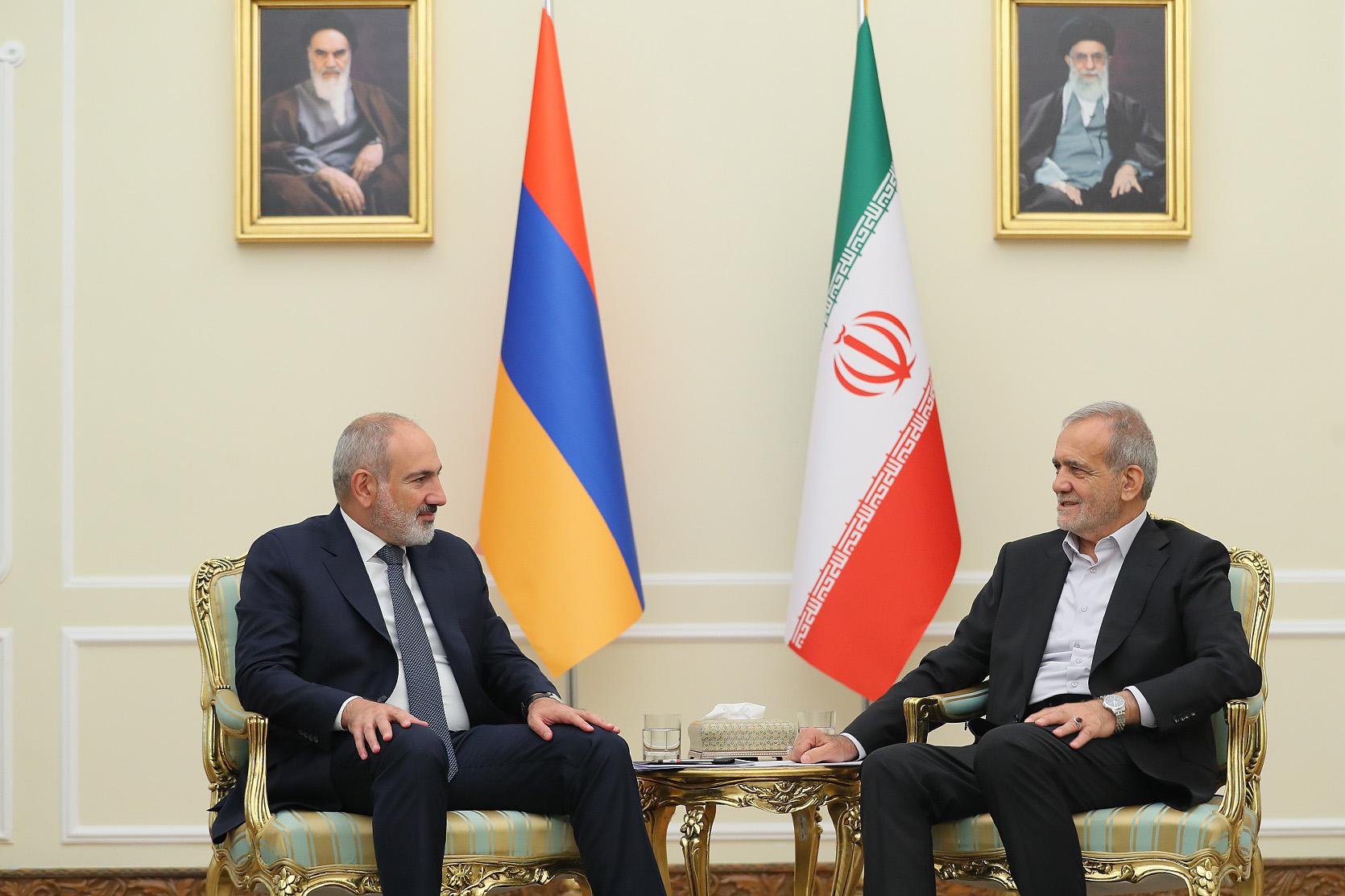Armenia should heed Azerbaijan’s messages Rather than seeking gains elsewhere
Armenia is very predictable, especially in terms of global geopolitics. Armenia is trying to please several countries at once. At this historical stage, we once again observe Armenia's behaviour in the international arena. The Armenia-Russia developing relations, marked by periodic tension and rapprochement (always with some reservations), seems to coexist with a pro-Western orientation.
However, close relations between Armenia and France are evident. Besides purchases of French weapons, Yerevan is also a leading player in the re-export of sanctioned goods to Russia. Although Paris, along with Brussels, Berlin, and Washington, vehemently condemns such an approach made by their allies, they keep a blind eye on Armenia. Perhaps they are pleased with Armenia’s opportunities created for them.

According to some analysts, this might be the crux of the matter. Armenia hosts a multitude of individuals and organisations from various regions around the world. For instance, a binocular-shaped intelligence mission, officially labelled as the civilian mission, has been operating on what is supposed to be sovereign Armenian territory, at the behest of France and Germany (under the patronage of the European Union). Additionally, a representative from the US Department of Defence has specifically been embedded within Armenia’s Ministry of Defence. This, however, is not surprising, as the US-Armenian military exercises have become a reality. Recently, EU Observer Mission Chief Markus Ritter and the political advisor to the EU Special Representative for the South Caucasus discussed expanding cooperation with Commander of the Border Guard Troops of Armenia’s National Security Service Edgar Unanyan.
Suddenly, Armenia's fundamentally different foreign policy toward Iran emerges. Some of our readers might cheer this choice as a sign of Armenia’s balanced international approach. This may seem plausible at first glance, a closer look reveals Armenia’s wavering stance—continuing with the same principle of aligning with one side, then another, and so on.
Experts loudly question how Armenia, aware of Iran’s opposition to any foreign interventions in the region, justifies its choice to Iranian leaders. Could Armenia be offering something interesting in return? Many observers note Iran’s silence regarding the increasing presence of Western military personnel in Armenia. However, what is particularly intriguing is Armenia's approach to this situation, despite speculation that there may be undisclosed agreements between Iran and some Western countries on this matter.
Last week, Iranian ambassador to Armenia, Mehdi Sobhani, known for his provocative remarks against Azerbaijan, refuted the report by Iran International about a military-technical deal between Yerevan and Tehran worth approximately $500 million. We note this point, but it’s not more than a detail.
The critical question is whether this policy might eventually lead to problems for Armenia. This question is particularly pertinent given recent statements from Tehran and Washington regarding the South Caucasus. Recently, Armenian Prime Minister Nikol Pashinyan informed Iranian President Masoud Pezeshkian about the "Crossroads of Peace" project, promoting it as a way to restore regional routes, though it failed to attract Iranian interest. Simultaneously, there were discussions about modernizing the Armenia-Iran border checkpoint.
However, the most intriguing development was Pashinyan’s meeting with Ayatollah Khamenei. During this meeting, Khamenei told the Armenian prime minister that “Iran views the Zangezur Corridor as detrimental to Armenia” and emphasized that “foreigners should not impose restrictions on the relations between countries and their neighbours.”

Tehran's position on this issue is well-known, but the real question is how long Yerevan can continue to oscillate among global powers. This becomes particularly relevant in light of recent developments, such as the remarks from US Assistant Secretary of State for European and Eurasian Affairs James O'Brien. According to numerous Armenian sources, O'Brien has emphasized the importance of restoring routes in the South Caucasus. He highlighted that a successful "opening of the route from Central Asia through Armenia and Azerbaijan" would reduce the Central Asian states' dependence on Russia and China, and provide them with greater access to global markets.
O'Brien also pointed out that during the trilateral meeting among Armenian Prime Minister Nikol Pashinyan, US Secretary of State Antony Blinken, and European Commission President Ursula von der Leyen, a "new platform to reduce Armenia's dependence on Russia" was confirmed. He stressed the need to take steps to eliminate "Armenia's dependence on Russia in economic and energy matters," and praised Pashinyan's "brave steps" towards "breaking away from Russia."
It’s quite intriguing, isn’t it? Therefore, the question arises about what Armenia hopes to achieve by shifting among countries with varying geopolitical interests.
It seems that the Armenian government must have confident answers to all these questions. To conclude this article, we’ll reference a recent statement made by Azerbaijani President's Representative on Special Assignments Elchin Amirbayov. Speaking at an online seminar hosted by the Hudson Institute in Washington, Amirbayov stated that “if we are talking about a long-term, sustainable, and irreversible peace, the opening of the Zangezur transport corridor is one of those immediate results of peace that could benefit not only Azerbaijan but, in fact, be even more beneficial for Armenia. For nearly 30 years, Armenia has been completely isolated in the region due to the occupation of Azerbaijani lands and has been excluded from participating in any economic projects in the South Caucasus.”
So, perhaps it would be wiser for Yerevan to heed the messages coming from Baku rather than continue seeking unclear political and economic gains from regions where Armenia will certainly not be a priority?
By Teymur Atayev
The views and opinions expressed by guest columnists in their op-eds may differ from and do not necessarily reflect the views of the editorial staff.








